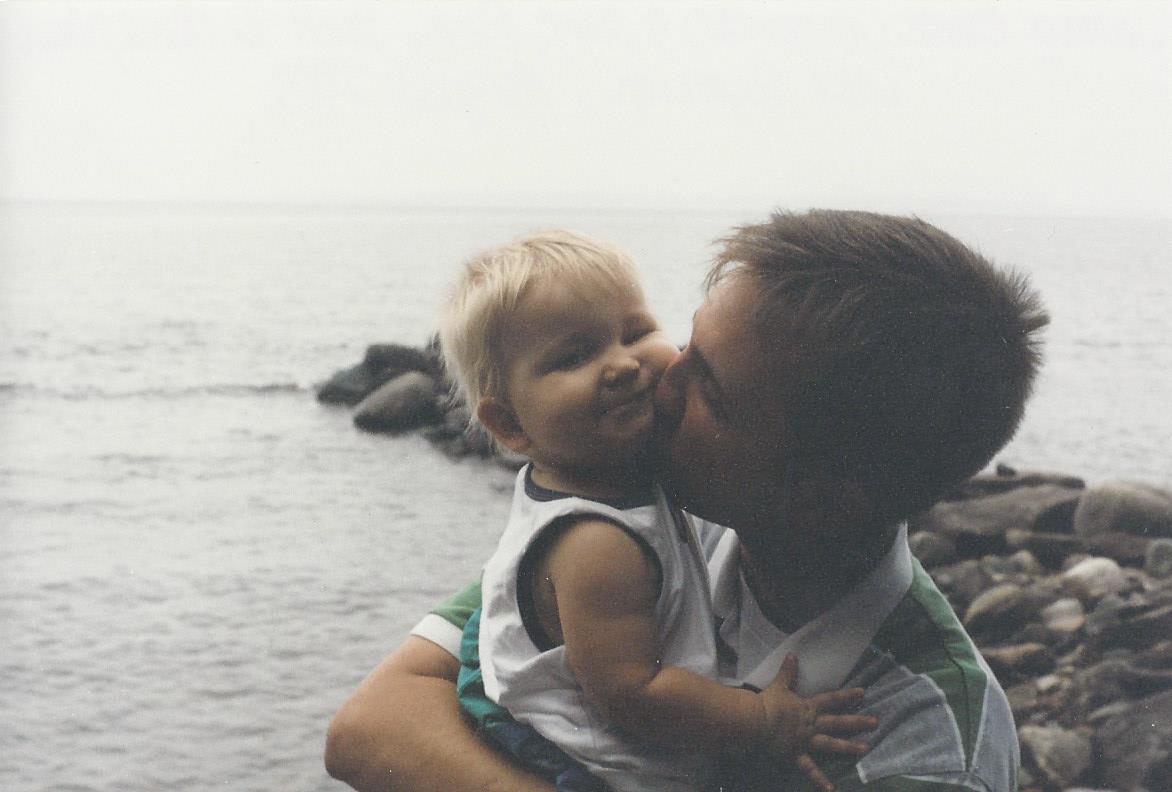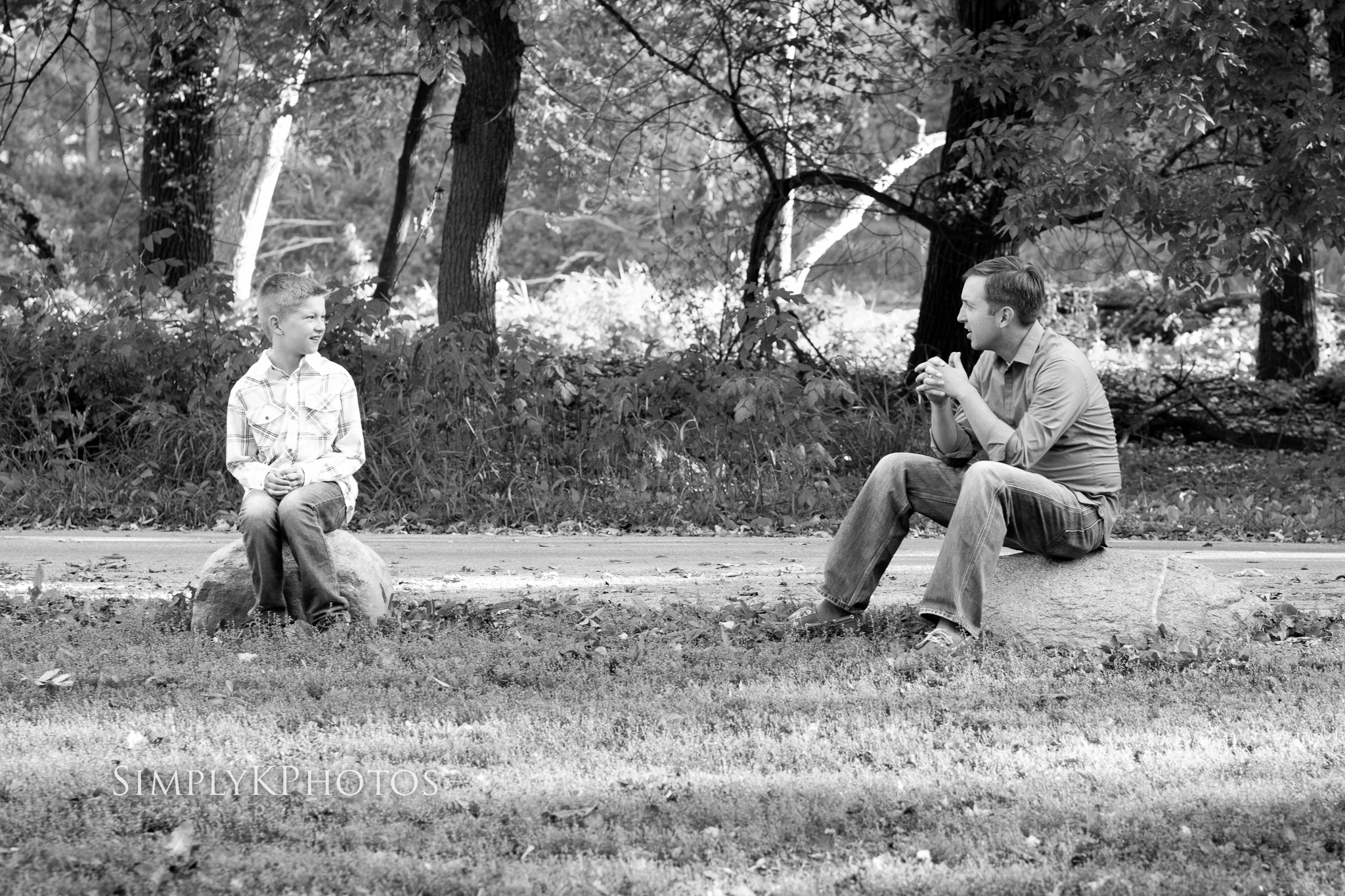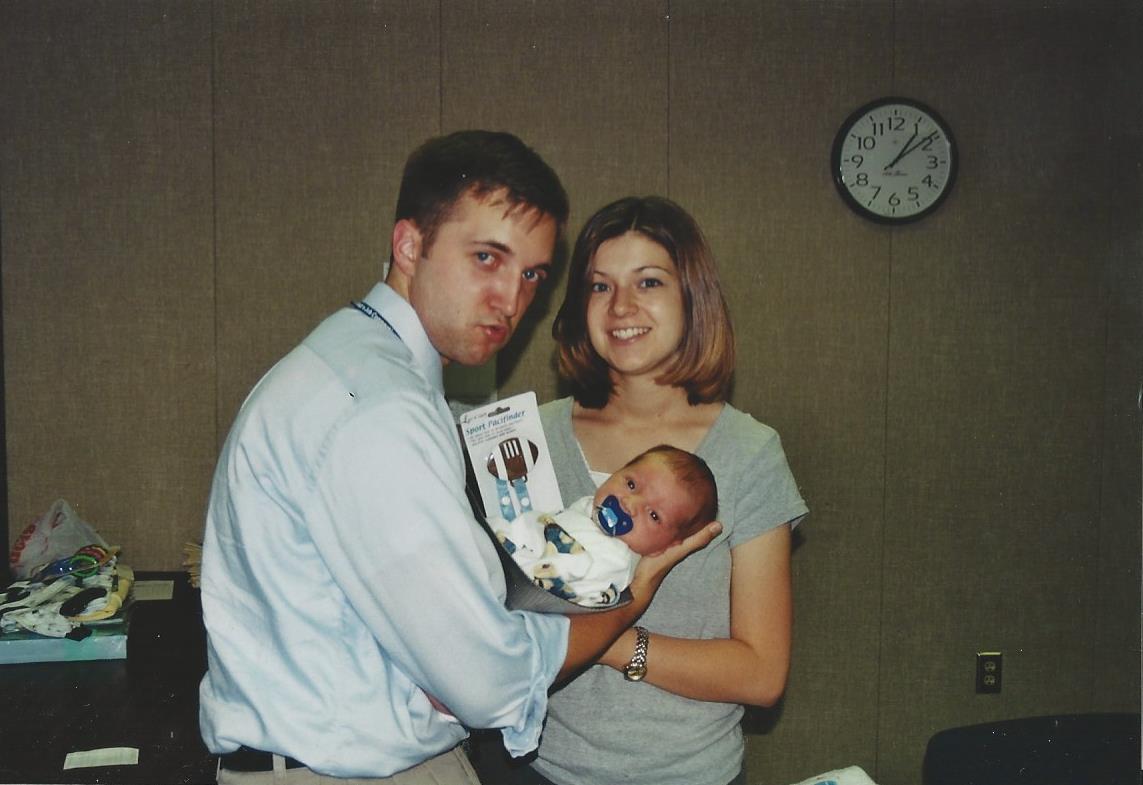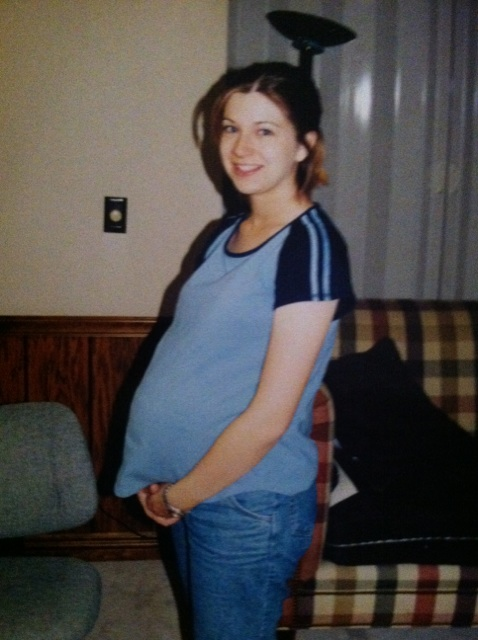
Lessons from the long run
When I was pregnant I was aware of every single little change in my body at every single stage of my pregnancy. I took prenatal vitamins. I read up on and kept track weekly of what was going on with my body and what was going on with the baby growing inside of me. I figured out really quickly what exact foods and smells would trigger nausea and vomiting. I knew exactly which foods would help a little with the nausea: limes and carrots (I was in my first trimester of pregnancy with J during my last semester in college and so I would carry bags of baby carrots to class and listen to the lecture and just chow down on carrots–that usually worked). I scheduled and went to every single prenatal doctor’s appointment. Got the ultrasounds I needed. Went to the birthing classes. I don’t have a lot of pictures of me pregnant (this was, of course, in the early 2000s and we had a 35 mm camera. Digital cameras were up and coming and expensive, and social media didn’t exist, so no need to show off that baby bump, right?)
Looking at the few pictures of my pregnancies, it does look like making and eating cake was an important part of taking care of me and baby too.

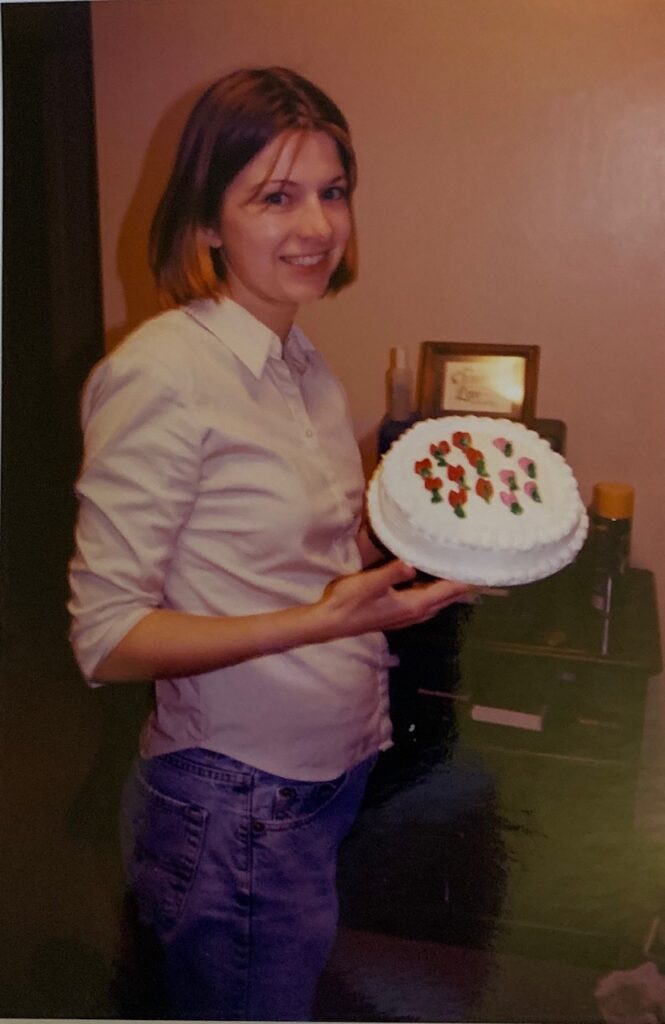
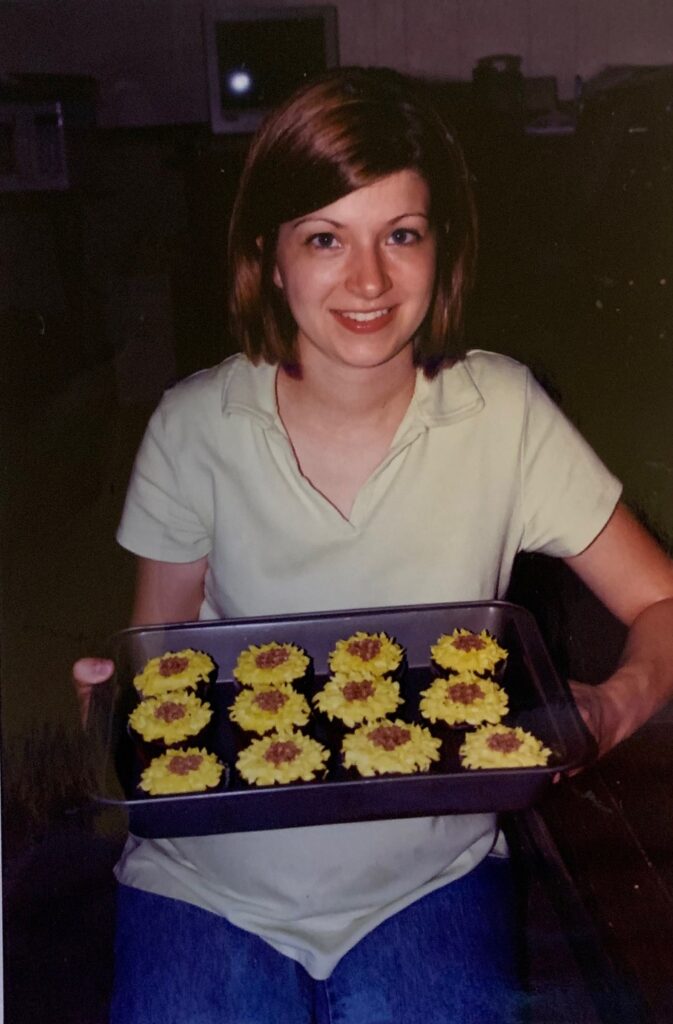

And then something happens. The babies come and you forget all about your body. You’re just too busy to even check in with it every once in a while. When you get sick with the flu or don’t get a descent night’s sleep, you don’t have the luxury of hunkering down in your bed and letting your body repair itself when you rest. You’re helping everyone else in the family who’s got the flu too. Or you sit through that track meet or orchestra concert when all you want to do is go to bed early that night.
But here’s the thing. I think most of us adults don’t do a very good job of checking in with our bodies (whether we’ve had babies or not). We go through our busy days, take on all the extra things, and we go through life not paying attention on how it’s affecting us both physically and mentally. A lot of us are helping take care of different people and their needs in different ways.
It’s easy to forget about our own experiences along the way.
I’ve told myself that I don’t want to be “that person” who talks about their marathon training 24/7 but I’ve had some lessons in training these last 2 months that I feel are strangely related to my experience as an autism parent. And a big lesson I’ve had these last 2 months is how I really haven’t checked in with my body like I did 15 years ago (when I was last pregnant with W). I’ve thought I’ve been taking good care of myself physically, mentally, and emotionally, but I’m not really doing as good of a job as I could be.
So lets talk about the lessons I’ve learned from the long run:
I’m running for me. Which is different than running for J.
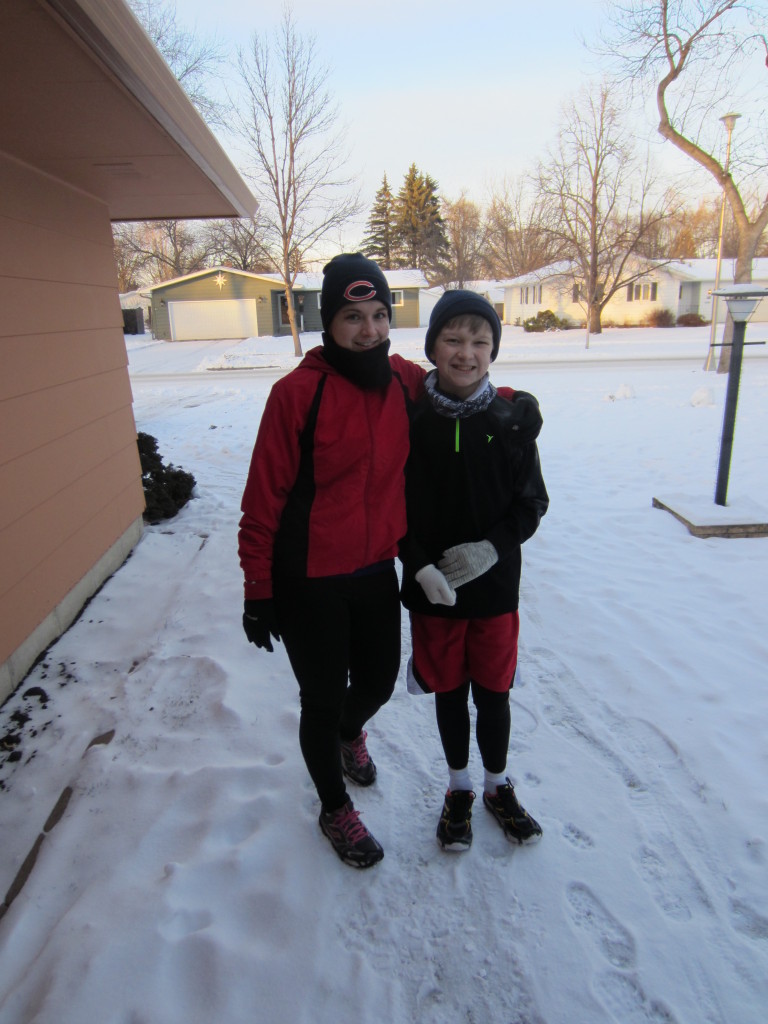
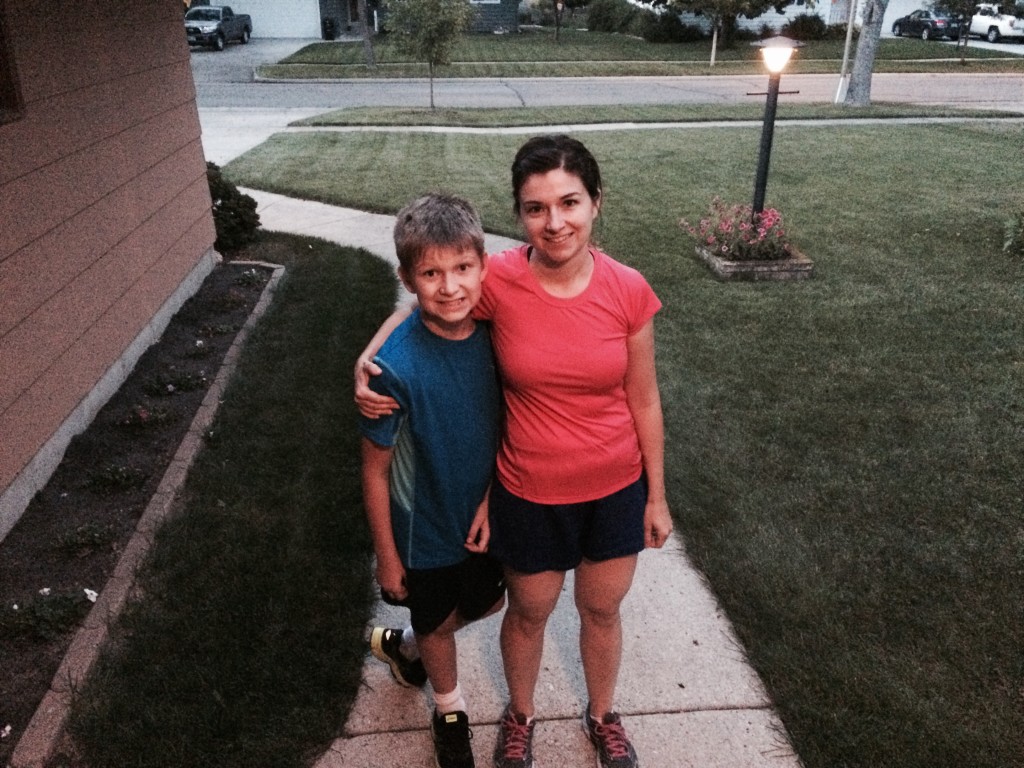
I was J’s running shadow for a few years before he was able to go to track and XC practices on his own. J was my entire focus for every single run I ran for those years. When he was trailing everyone else on his team by blocks I was running beside him giving him verbal pep talks for 2,3,4 miles a day. I would run ahead of him to try to push him to run faster. I would come home sore, tired, make dinner, get J started on homework. And somehow, I never ended up terribly injured. Did I stretch, roll out, and make sure I ate enough or drank enough water after I ran with J? Never. I just didn’t have time for that. Nor did I really think about it. Because I wasn’t really “running.” I was just helping J.
Now that I’m running for me, I’m learning that I have to do ALL those things to take care of my body so I don’t get injured. In those years of helping J I learned some really bad habits for my running routine. After my 1st 13 mile long run in training I learned that maybe I should have taken the time to eat a small breakfast an hour before my run instead of just getting out of bed and going for it like I usually do when I’m trying to squeeze in a run (I felt like I was going to black out by mile 8–somehow, I made it home okay). The week later I learned that maybe I should of had that post recovery meal 30 min after my run instead of eating a granola bar and heading out for a 3 hour shopping excursion with W. I’m learning that taking 10 minutes to do a good roll out is absolutely necessary if I want to walk the next day. I can’t ignore my body. It’s different running for me than it was running for J.
I’m learning to get to know my body again and its strengths and weaknesses
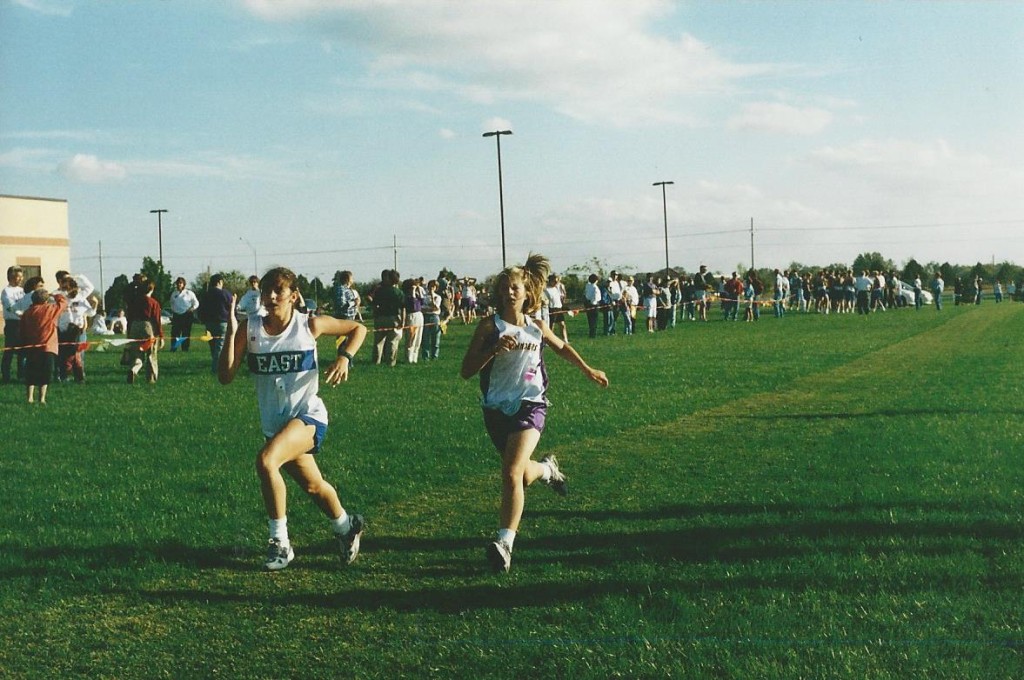
Right now I’m working with a running coach and because I want not only to train safe but also run a sub 4 hour marathon, and I’m really pushing myself to reach that goal. When I was running with J, I just trying to get us both to the end of the workout, but even then, my goal was J not me.
Through my training, I’m remembering again the physical weaknesses I have (hello IT band flare ups from high school!) Which means that I really need to roll out. Listen to my body. Dial back a little if it becomes too much. Listening to my body is a skill I’m re-learning again. I’ve gotten pretty darn good at ignoring it to make sure other things get done.
I’m learning that every run is different and little loads can become big loads quickly.
I FINALLY figured out on how to fuel my body properly for these 13 mile runs but then failed to realize that just a little extra weight on one side of your body can cause a lot of strain on your body. At mile 8 on one of my more recent runs, my knee started screaming. I felt my kneecap was going to break. I was limp running. Then I had a thought come into my mind. What’s different about this run? I had started the run with my phone in my left pocket and small water bottle and sports gels in my right pocket. At this point in my run, the water bottle and sports gels were almost gone, and so I had an uneven extra 0.5 pound on my left side with my iPhone and Otterbox case which was aggravating my hip. Minutes after I switched the phone to the other side of my body, I could run with a lot less pain in my knee.
Training for this marathon has really forced me to pay attention to my body again. I have to ask myself: Am I getting the fuel I need, the sleep I need, the water I need? Am I aware of what injuries I’m prone to and what could aggravate them? I haven’t had to think about myself like this in a very long time. I’m usually run from one thing to the next shoving a couple of granola bars in my mouth. I go to bed really late and get up early. I take on extra “loads” when I’m not in a good place to take them.
We all do this.
As I think about how important my marathon training plan is (and it is a plan. It’s meant to keep me healthy and safe, push me to become faster and stronger, and ultimately help me run that 26. 2 miles when the time comes), I think about how most of us go through life without a plan. Or maybe we have a plan, but we’re not really good at following it. Because we don’t really plan out or safeguard our mental and emotional lives. There’s no immediate physical pain to let us know to get rid of that extra weighted imbalance or you won’t be able to take another step. We run around shoving granola bars into our mouths (both literally and figuratively) to tide us over and get us through our next responsibility, not realizing that getting some good carbs and protein instead will prevent us from crashing and burning later. As a parent (and a special needs parent) I’m realizing more and more I need to be tuning A LOT BETTER to my mental emotional needs too. Am I coming off a rough time? Do I need to recover? Do I need to refuel better? Do I need an extra rest day? Because being a mom of an autistic kid is a long, long marathon.
I read the other day that humans are meant to run long distance. We have evolved to be that way. And that makes total sense to me. Because humans run mental emotional marathons every day of their lives. We’re built to endure, but we’re not built to burn out. And there’s a big difference between the two. I hate that we’ve created a society where success and hard work looks like being insanely busy all the time. I hate that we require that of each other too, just expecting people can just pick up an extra project, run out and pick up that extra thing, pick up that extra slack. For some stupid reason, being mentally and emotionally overloaded to the point where we’re almost (but not quite) out of control is the optimal place to be. What if we were to take our mental/emotional well being as seriously as physical well being? Honestly, I think a lot of great things would happen. I think we’d be able to do even more important, meaningful, quality things than all of the the “busy things” we do every day. We would be better people and in turn treat other people better too by really paying attention to their needs because we’ve taken care of our own. It would be pretty awesome.


